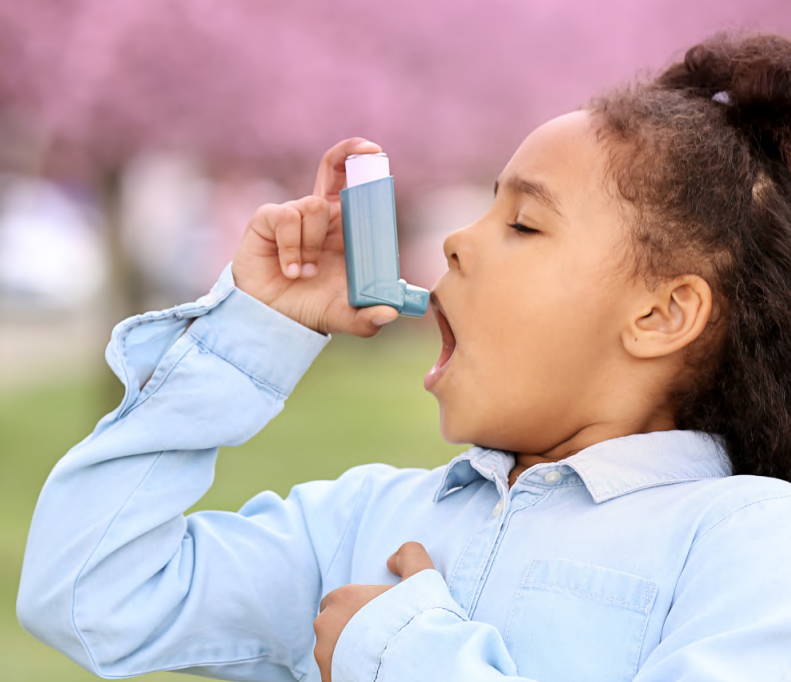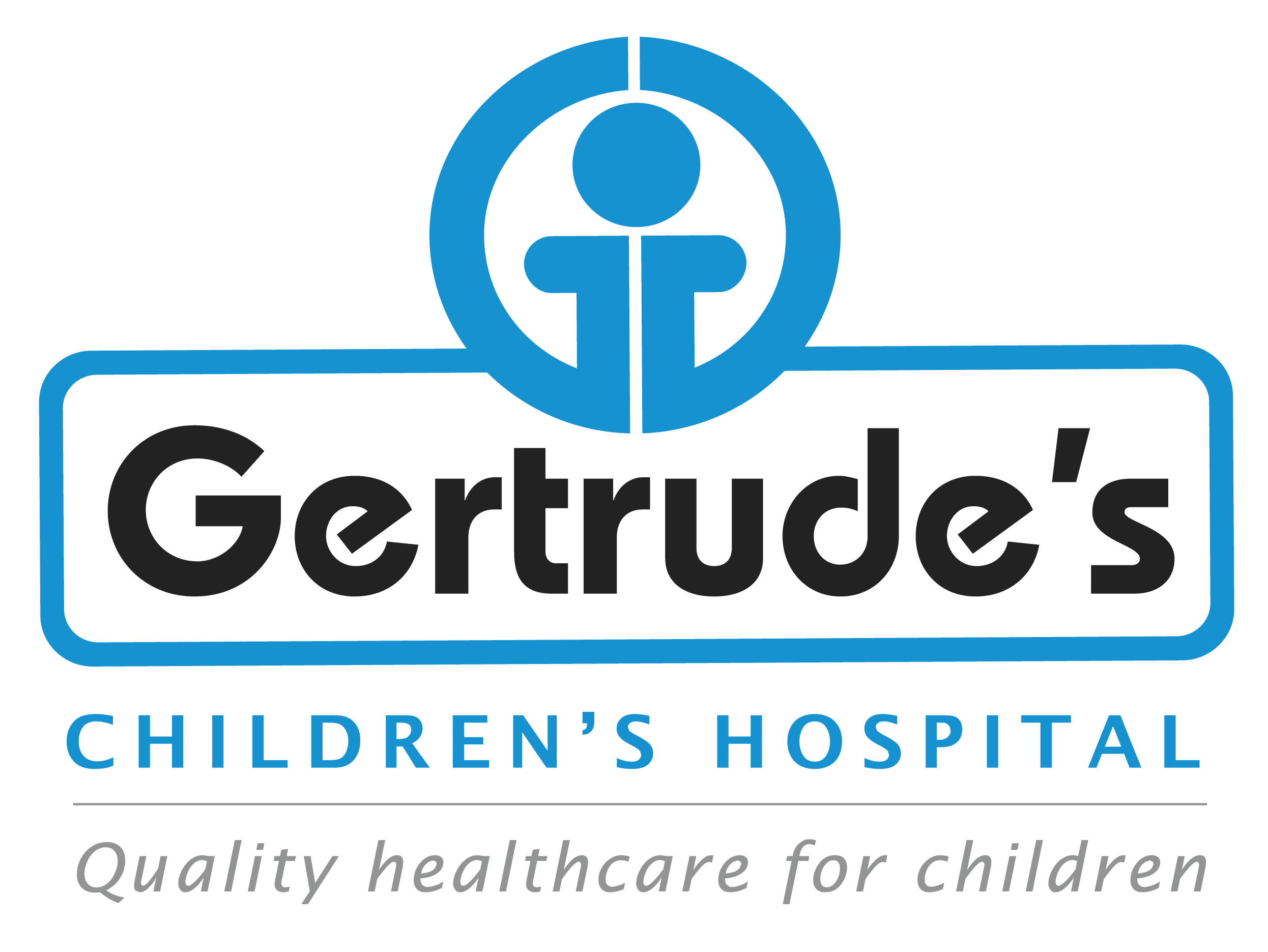Respiratory illnesses account for a big portion of hospital visits with asthma being the most prevalent non-communicable paediatric condition. The respiratory medicine program provides preventive, diagnostic, and curative services. The respiratory care program also includes emergency care to treat respiratory related emergencies including but not limited to aspiration, choking , acute asthmatic exacerbation.
Paediatric Respiratory Medicine and Allergy Care
About the service

Why Us
Common allergic reactions may include sneezing, runny nose, itchy or watery eyes, skin rashes, hives, swelling, difficulty breathing, or even anaphylaxis, which is a severe and potentially life-threatening reaction that requires immediate medical attention.
Allergies can develop at any age and can be triggered by a variety of factors, including genetics, environmental exposure, and lifestyle choices. Treatment options for allergies may include avoiding the allergen, taking medication to alleviate symptoms, or receiving allergy shots to desensitize the immune system over time.
Paediatric Allergy Conditions and Services
- Parent/public education to prevent asthma development, asthma, primary prevention of infections that cause respiratory illnesses
- Prevention of complications from chronic respiratory conditions
- Prevention of allergies
- Home management of emergencies relating to acute and/or severe respiratory conditions.
Diagnostic services include:
- Pulse oximetry
- Spirometry and other lung function tests
Laboratory tests including:
- Microscopy and molecular testing to diagnose infectious respiratory conditions
- Bronchoscopy
- Apnea diagnosis, and determination of causes of allergies.
- Treatment of respiratory infections
- Management of allergic conditions
- Management of acute and chronic respiratory conditions like asthma, croup, and cystic fibrosis.
For chronic illness, the parents/caregivers are part of the management team as most of the care is provided at the home setting on an ongoing basis.
Other conditions that affect the respiratory function include:
- congenital lung malformations
- Dysphagia
- Muscular dystrophy
- Scoliosis
These require a wider team of experts to provide treatment. Some of the treatments will require surgery.
- Paediatric pulmonologists
- Pharmacists
- Nurses
- Pathologists
- Respiratory therapists
Indeed in most cases the parent/caregiver is part of the care delivery team.
The Asthma care program provides ongoing care for many children through and integrated preventive, diagnostic/ monitoring, and treatment approach that aims at improving the children’s quality of life.
Patient Education
What happens when I have an allergy?
The problems experienced depends on the area of the body that is affected. A reaction affecting the eye may cause them to be red, itchy or watery; The same irritants may cause a reaction in the nose making one have stuffy nostrils, sneezing, runny nose, or itchy nostrils. An allergy on the skin may cause rashes, swellings, or red patches. One may have an itchy, burning, stinging, or painful feeling over the affected area. If it goes deeper and affects the blood vessels swelling may occur in the face, tongue, throat and windpipe, abdomen, or arms and legs. If it affects your gut you may have changes in bowel habits (diarrhoea or constipation), abdominal pain or discomfort, vomiting or reflux. When the airways are affected breathing can become difficult. These symptoms typically occur within minutes to hours after contact with the offending substance.
What substances can cause a reaction in my body?
These are things that you get into contact within a variety of ways:
Through the mouth when you eat or drink certain foods, specific ingredients, a food additive, a particular medicine. Through the air when you breathe in. For example pollen, smoke, dust, molds, fumes, sprays, or fur from pets. Through the skin when it touches, rubs or pricks through; something you apply on the skin, a substance in the fabric or jewellery you wear, something that rubs or pricks your skin like a plant or insect. It may be injected into you like medicine or intravenous fluids. An individual could be sensitive to one or a variety of allergens.
What makes me more likely to have allergies?
If someone you are related to by blood has asthma or the problems related to allergies that are mentioned above.
If you have asthma or allergy symptoms.
If you are a child.
What are the common conditions associated with allergies?
Common allergic disorders include allergic rhinitis or hay fever, asthma, eye allergy, allergic eczema, hives or urticaria, and anaphylactic shock is at the life threatening end of the spectrum.
Can allergies cause something serious?
One can get serious allergic reaction that starts rapidly, causes serious problems and can lead to death. This is anaphylaxis. It can cause an itchy rash, throat or tongue swelling, difficulty in breathing, vomiting, lightheadedness, and low blood pressure. It is most commonly triggered by foods, medications and insect stings.
Some people with allergies also have asthma, a condition of the airways that causes problems like recurrent coughs, wheezing, and shortness of breath. Exposure to allergens can trigger an asthma attack. Severe attacks of asthma can be life threatening.
People with respiratory allergies and at an increased risk of developing irritation or infection in the sinuses, the ears, the throat and the lungs.
How do particles cause allergy symptoms?
When you come into contact with an “allergen” your body detects it and makes proteins called antibodies against it. The antibody latches onto the allergen or antigen and instructs the body to release certain chemicals to facilitate the removal or destruction of the offender. It is these chemical that cause allergy symptoms.
How is allergy diagnosed?
Sometimes you already know what you are reacting to; other times you may be mistaken; many times you just have no idea what it is. It is important to work with your doctor to find out the specific allergy and design efficient treatment strategy. Typically the doctor will ask you questions to understand you ,your problem , your environment and whether your family members have allergy related problems. A physical exam will help reveal if you have features of past or current allergic reactions. Various tests may also be needed.
What are allergy tests?
The most helpful test in finding the cause of allergies are skin tests. There are different ways of doing them but all involve exposing the skin to small amounts of extracts from common allergy-causing substances and observing changes on the skin over time. The test may involve a scratch test or prick test where the allergen is scratched onto the upper layer of the skin. The doctor could inject a small amount of the allergen just under your skin-an intradermal test. He could also stick a patch containing the allergen onto an area of your skin-a patch test. The substances may cause you to see a rash or swelling or redness that may be accompanied by an itchy, stinging, or burning sensation. That is how the doctor knows what may be causing your problem.
There are allergy blood tests that detect the presence of and measure the amount of antibodies formed against specific allergens. These include Enzyme-linked immunosorbent assay (ELISA, or EIA) and Radioallergosorbent test (RAST). These may be ordered under some circumstances for example if you tend to get very severe reactions , if your skin has a problem that makes skin tests difficult or if you must continue taking medication that interferes with the test results.
How is allergy treated?
Treatment of allergy takes into account one’s medical history, the results of allergy tests and how severe one’s symptoms are. Three strategies may be employed:
Avoiding allergens where possible.
Taking medications to suppress the allergy symptoms. There are many safe prescription and over-the-counter anti-allergy medicines. There are some for applying on affected skin, others are eye drops, nose drops or nasal sprays; some may be swallowed in syrup or tablet form; In hospital there are even injectable ones. They also work in a variety of ways. Talk to your allergy team on what would be appropriate to treat your problem.
Immunotherapy where the allergens are administered to the body either by injections or put under the tongue starting with small doses and increased over time. With time the person becomes progressively less sensitive to the allergen. Allergy shots may work well for certain allergies.
Talk to your allergist about the risks and benefits of these approaches.
Paediatric Allergy doctors
What to Expect
See the effectiveness of treatments, medical procedures, and healthcare services provided by Gertrude’s Children’s Hospital.
Admission & Eligibility
At Gertrude’s Hospital, a children’s facility, only patients who are below 18 years old are eligible for admission as inpatients. Admission is only based on a child’s medical needs at the time they are being admitted.
Once admitted, the patients are placed under the care of an appropriate and experienced private consultant.
Casualty
This admission follows the normal procedure whereby a patient comes to Gertrude’s Hospital as an outpatient case and the doctor feels that it will be in the best interest of the patient’s health to be admitted for further treatment and observation.
Satellite Clinics
This admission almost follows the normal procedure whereby a patient comes to Gertrude’s Hospital as an outpatient case. But in this case, the patients visits one of the Gertrude’s Hospital’s Satellite Clinics and the doctor from the clinic feels that it will be in the best interest of the patient’s health to be admitted for further treatment and observation.
The patient is referred to the satellite clinic and transport is organised to take the patient to Gertrude’s Main Hospital. A bed is prepared to make the admission smooth.
Emergency
This admission does not follow the normal procedure in an Emergency case and the patient is very serious and doctor feels that it will be in the best interest of the patient’s health to be admitted for further treatment and observation, the patient is admitted directly to the ward or ICU depending on the status of the patient.
Our branches
Gertrude’s Children’s Hospital
34 Muthaiga Road
0207206000, 0730645000, 0709529000
Lavington Medical Centre:
Othaya Road, Off Gitanga Road
0207206002, 0730645002, 0709529002
Donholm Medical Centre:
Manyanja Road, Off Doonholm Roundabout
0207206003, 0730645003, 709529003
Nairobi West Medical Centre:
T-Mall, 3rd Floor, Langata Road
0207206004, 0730645004, 0709529004
Pangani Medical Centre:
Juja Road, Next to Pangani Girls, Pangani Road
0207206005, 0730645005, 709529005
Embakasi Medical Centre:
North Airport Road, Next to City Cabanas
0207206006, 0730645006, 0709529006
Thika Medical Centre:
Zuhura Place, along Kenyatta Highway, Thika
0207206010, 0730645010, 0709529010
Buru Buru Medical Centre:
The Point Mall, Rabai Road
0207206012, 0730645012, 0709529012
TRM Medical Centre:
Thika Road Mall 2nd Floor, Thika Road
0207206013, 0730645013, 0709529013
Sarit Medical Centre:
Sarit Centre, 2nd Floor, Karuna Road, Westlands
0207206014, 0730645014, 0709529014
The Junction Mall Medical Centre:
The Junction Mall 4th Floor Ngong Road
0207206015, 0730645015, 0709529015
Komarock Medical Centre:
Mwangaza Road Komarock Phase II
0207206007, 0730645007, 0709529007
Kisumu Medical Centre:
Mito Jura Road, Off Jomo Kenyatta Highway, Kibuye
0709529017 | 0730645017
Meru Medical Centre:
Greenwood City Mall, 2nd Floor, Off Meru Embu Highway
0709529018 | 0730645018
Mombasa Medical Centre:
Links Plaza, 1st Floor, Links Road, Nyali
0207206011, 0730645011, 709529011
Syokimau Medical Centre:
Gateway Mall, 4th Floor, Mombasa Road
0207206016, 0730645016, 0709529016
Kitengela Medical Centre:
Kitengela Mall, 3rd Floor, Namaanga Road
0207206008, 0730645008, 0709529008
Rongai Medical Centre:
Maiyan Mall, 1st Floor, Rongai
0207206009, 0730645009, 0709529009





